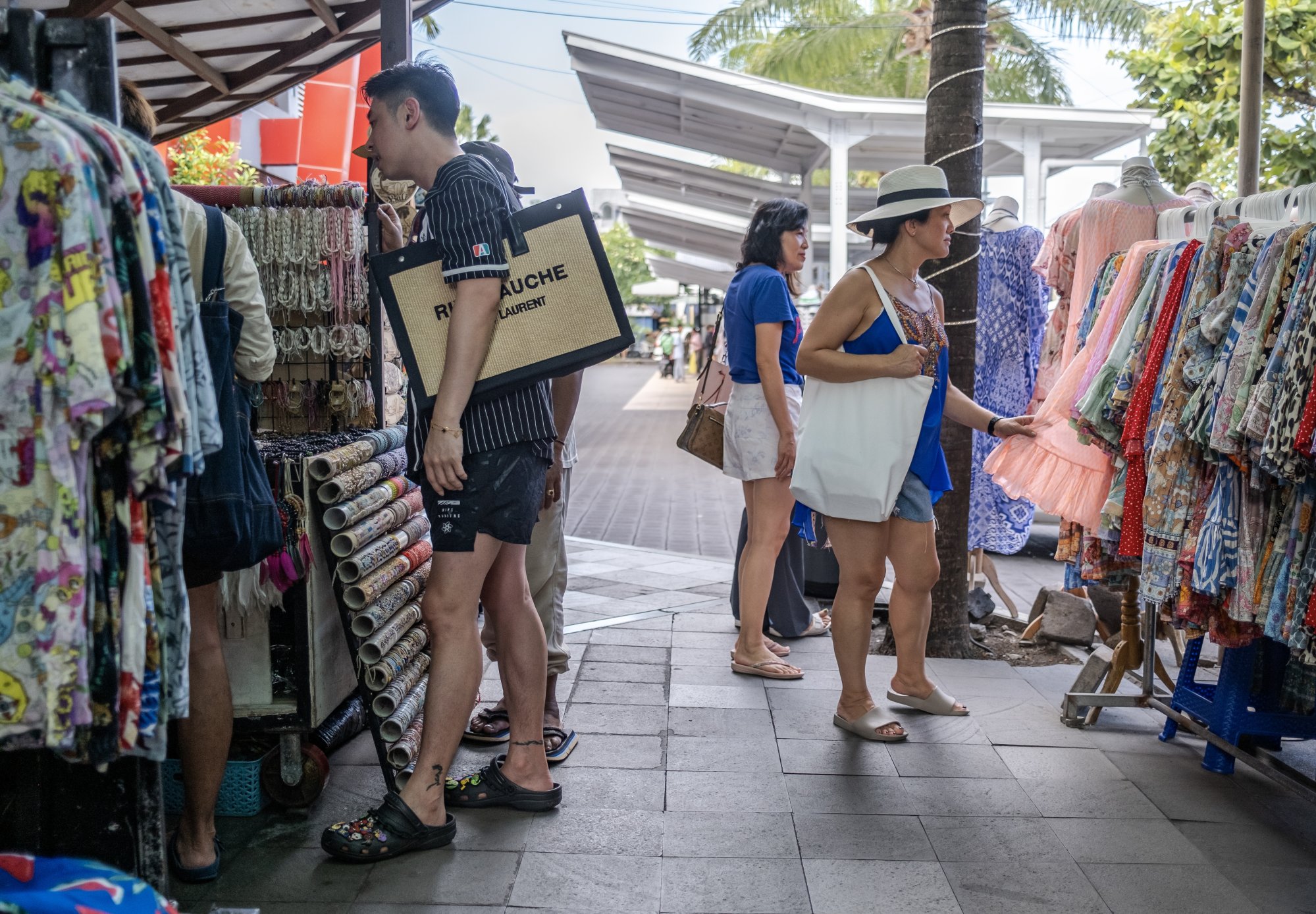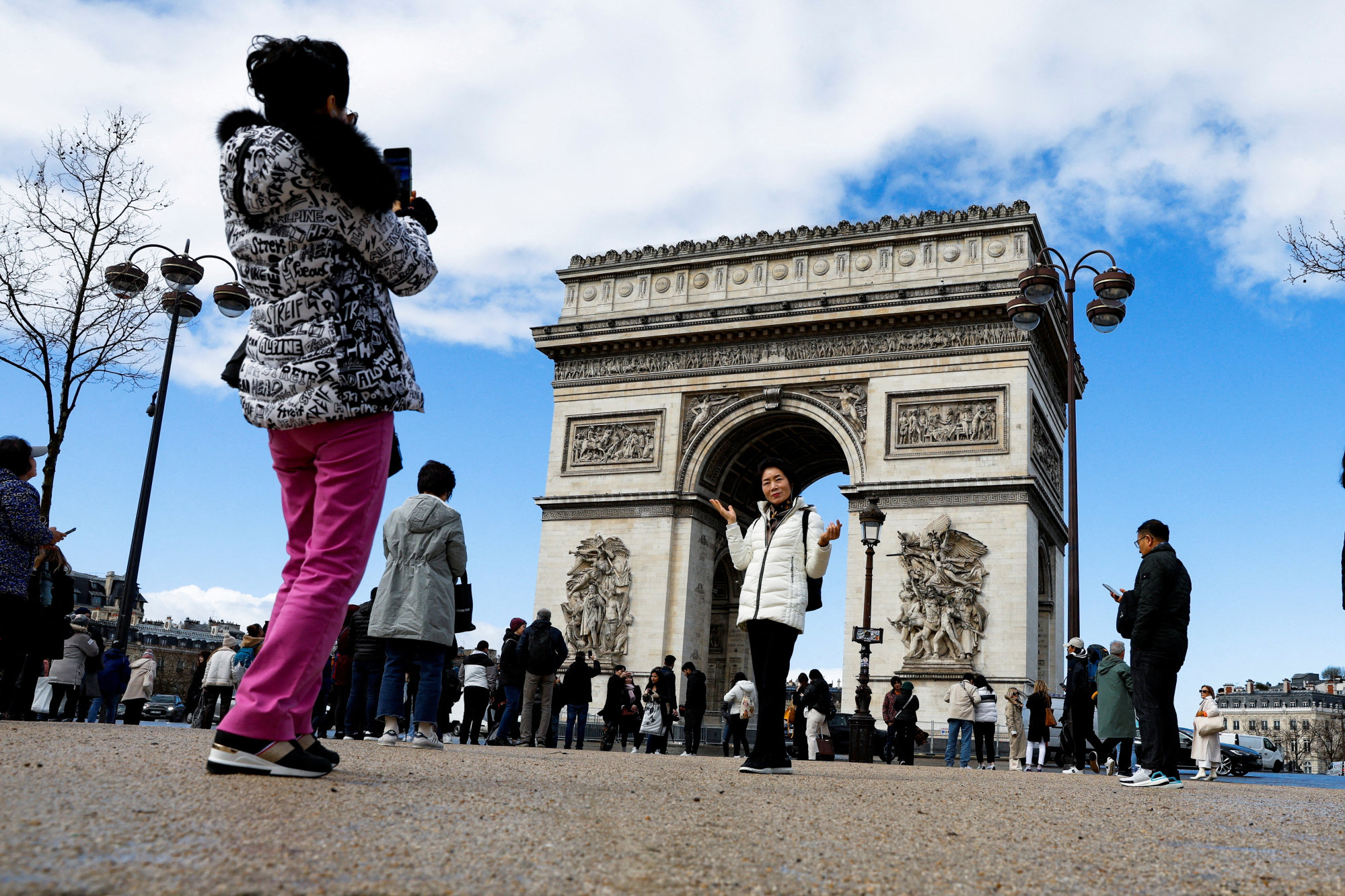Chinese tourists are headed overseas for the extended May Labour Day holiday at near pre-pandemic levels, accelerating a rebound of what used to be the world’s biggest travel market.
Outbound trips between April 27 to May 5, which includes the five-day break that started Wednesday, are just 7 per cent below 2019 levels, according to ForwardKeys, a travel forecaster that analyses air ticketing, travel agency and other industry data.
A last-minute rush has seen bookings surge at a faster pace than was expected based on ticket sales at the beginning of April, according to the travel insights company. Meanwhile, domestic ticketing has surpassed 2019 levels by 4 per cent for the period.

The data, along with the results of Bloomberg Intelligence’s China traveller sentiment survey, shows demand rebounding, despite concerns the country’s sluggish economy is weighing on consumer confidence and spending. A swift return of Chinese travellers, who spent almost US$248 billion on trips abroad in 2019 before the pandemic essentially shut down tourism, is key to filling a big hole in the global travel industry.
“We’re now well ahead of the pace – that’s the bottom line,” said Tim Bacchus, Bloomberg Intelligence’s senior industry analyst. “We’re seeing an acceleration and an increase of expectations on China’s outbound travel. It’s recovering faster than what the industry expected at the beginning of the year.”
In 2019, Chinese travellers made 170 million trips abroad and their spending made up 14 per cent of global tourism revenue, according to World Travel and Tourism Council data. Analysts had expected China’s outbound tourism to be steady this year, with some forecasting a return to pre-Covid levels by 2025.
Now, there are multiple signs China’s pickup is gaining momentum. Bloomberg Intelligence expects international air travel from the mainland to top 90 per cent of 2019 levels by year-end after a strong first quarter – up 5 percentage points from January.
Destinations in Asia, including Malaysia, Singapore, and Indonesia, are set to be among the biggest beneficiaries of the jump in Chinese travellers. Traditionally, Hong Kong and Macau are also among favoured and easy-to-get to spots, and ForwardKeys counts those trips as outbound travel.
Chinese holidaymakers are also favouring Japan, where a weaker yen helped to attract more than 452,000 mainland visitors in March. Chinese visitors ranked third among international arrivals in March – though their numbers were still about 35 per cent below pre-Covid levels.

Outside Asia, Europe is favoured during the extended Labour Day holiday, according to ForwardKeys. Bookings for Italy rose 19 per cent from 2019 levels, while the UK is seeing a 12 per cent gain. And Beijing’s push of travel spots in the Middle East that’s part of the country’s Belt and Road Initiative is working: the United Arab Emirates was the top destination outside Asia for trips during the May holiday.
Among mainland Chinese polled in Bloomberg Intelligence’s April travel sentiment survey, 58 per cent said they have booked an overseas trip in the next three months, up from 54 per cent in January.
“We’ve been thinking that Chinese consumers are pretty strapped, hurt by the stock market and the property slump,” said Bacchus. “What we’re actually seeing is travel is still being prioritised by Chinese. That’s a great sign for the whole industry.”

Domestic travel is also booming. China’s railway stations saw a peak of travellers on May 1, the start of the Labor holiday, local media reported, with images of train stations packed wall-to-wall with. More than 1.4 billion domestic trips were made in the first quarter, up 17 per cent from last year, China Central Television reported.
Holidaymakers in the country spent 1.52 trillion yuan (US$210 billion) last quarter, also a 17 per cent increase, according to CCTV.
“The resurgence of international travel, coupled with robust demand for domestic travel, paints a promising picture for the industry in China,” said Nan Dai, ForwardKey’s China market analyst.
“Robust demand from the Chinese market also drives the global tourism recovery and sustains jobs and businesses reliant on tourism.”
The main headwind that might prevent a full recovery of overall international flights for the China market to 2019 levels this year is the lack of foreign passengers heading into China, said BI’s Bacchus.
Strained relations with the US has have spilled over into travel, while European holidaymakers also haven’t returned in big numbers either, despite China’s relaxation of visa rules for some countries.


